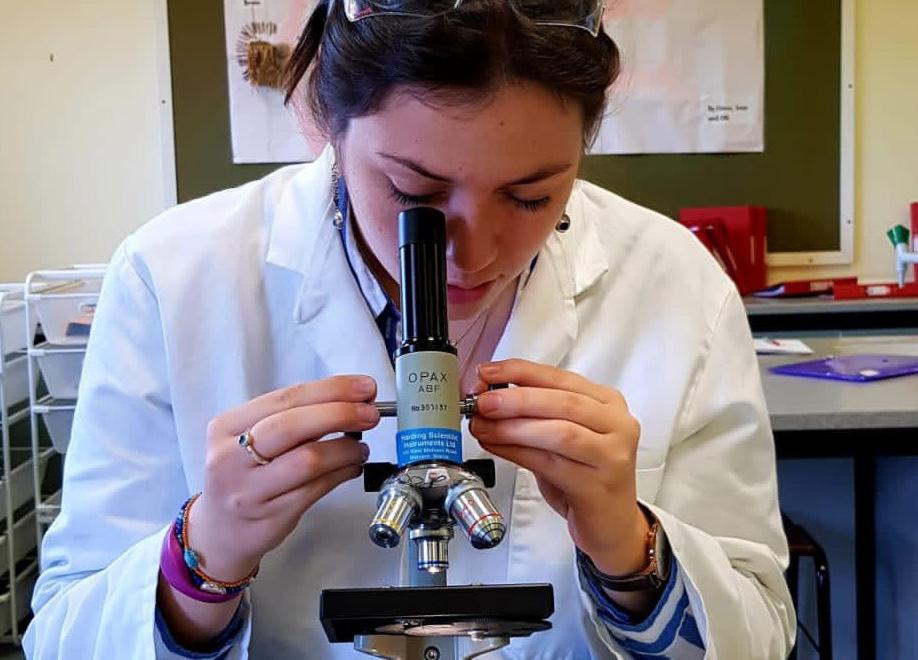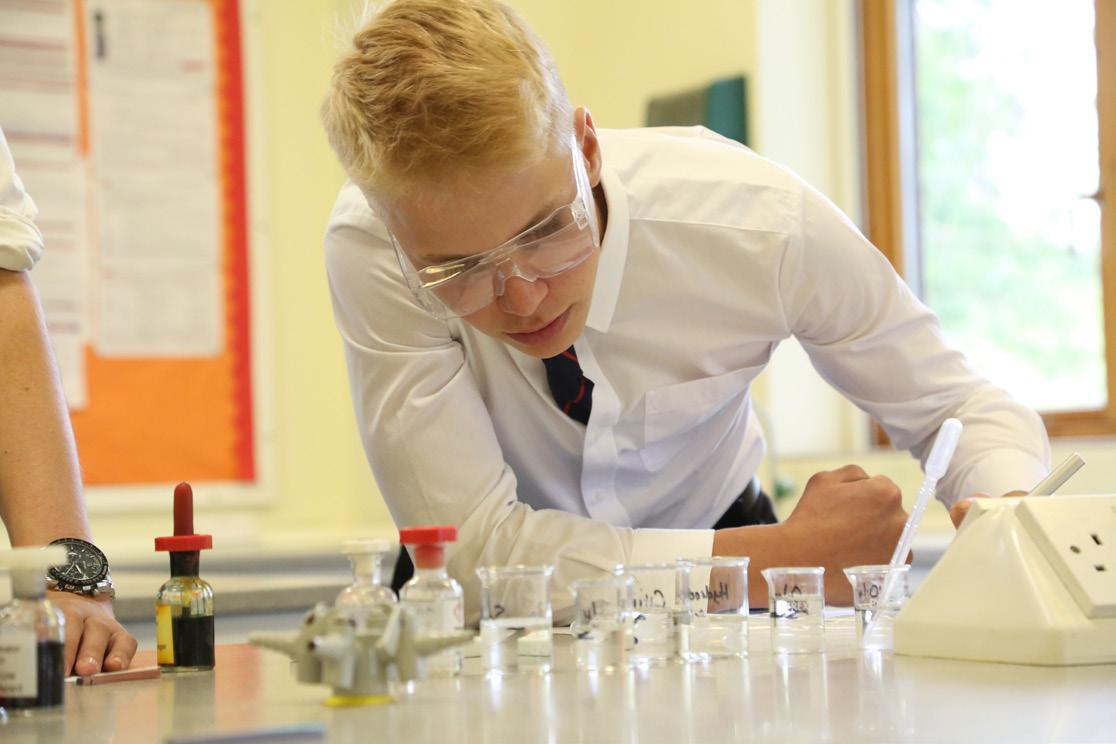
4 minute read
Science
from GCSE Options - 2021
The National Curriculum requires all pupils to study a balanced Science course for the GCSE examination. All pupils study Edexcel IGCSE Biology, Chemistry and Physics. This gives a solid grounding in the basics of each of the three subjects. An examination at the start of the Summer Term in the 4th Form will determine the pupils’ GCSE examination pathway.
For those pupils whose strength is not in the Sciences, the Edexcel Single Award Science IGCSE scheme is followed. If the single award pathway is followed at IGCSE the pupils will sit one 1 hour and 10 minutes theoretical paper in each of the three disciplines at the end of the course, which include examining the pupils’ practical skills.
For some pupils, the Edexcel Double Award Science IGCSE scheme is followed. In the January of the 5th Form trial examinations will be sat in each subject and a decision made, based on the trial results, as to whether the double or the single award examinations should be completed by the pupil in June of the pupils’ 5th Form.
Those pupils with a good aptitude for Science will carry on with the IGCSE schemes in each subject, the Edexcel Triple Award Science IGCSE scheme is followed. In the January of the 5th Form, trial examinations will be sat in each subject and a decision made, based on the trial results, as to whether the double or the triple award examinations should be completed by the pupil in June of the pupils’ 5th Form.
If the double award pathway is followed at IGCSE the pupils will sit one 2 hour theoretical paper in each of the three disciplines at the end of the course, which include examining the pupils’ practical skills.
If the triple award is followed at IGCSE the pupils will sit two examinations in each of the three disciplines at the end of the course. These examinations will involve a 2 hour and a 1 hour and 15 minutes theoretical paper, which include examining the pupils’ practical skills.
All of the IGCSE specifications require that all candidates demonstrate the following assessment objectives in the context of the content and skills prescribed.
Knowledge and Understanding - In the examination, pupils will be tested on their ability to:
• Recognise, recall and show understanding of specific scientific facts, terminology, principles, concepts and practical techniques including aspects of safety • Draw on existing knowledge to show understanding of the ethical, social, environmental. • Economic and technological applications and implications of science • Select, organise and present relevant information clearly and logically, using appropriate vocabulary
Application of Knowledge and Understanding,
Analysis and Evaluation - In the examination, pupils will be tested on their ability to:
• Describe, explain and interpret phenomena, effects and ideas in terms of scientific principles and concepts, presenting arguments and ideas clearly and logically • Interpret and translate data presented as continuous prose or in tables, diagrams drawings and graphs, from one form to another • Carry out relevant calculations • Apply scientific principles and concepts in solving problems in unfamiliar situations including those related to the ethical, social, economic and technological applications and implications of science • Assess the validity of scientific information, experiments, inferences and statements and make informed judgements from them
Experimental and Investigative Skills - In the assessment of these practical skills, pupils will be tested on their ability to:
• Devise and plan investigations, drawing on scientific knowledge and understanding in selecting appropriate techniques • Demonstrate or describe appropriate experimental and investigative methods, including safe and skillful practical techniques • Make observations and measurements with appropriate precision, record these methodically, and present them in a suitable form • Analyse and interpret data to draw conclusions from experimental activities which are consistent with the evidence, using scientific knowledge and understanding, and to communicate these findings using appropriate specialist vocabulary, relevant calculations and graphs • Evaluate data and methods
IGCSE Biology:
IGCSE Biology covers the major animal and plant systems in a traditional way, but also introduces the pupils to important breakthroughs of recent years, such as cloning and genetic engineering.
IGCSE Chemistry:
This subject is comprehensive and relevant to modern life and covers the three branches of Chemistry: inorganic, organic and physical. It aims to give pupils a sound knowledge base, as well as industrial and practical applications of chemistry.
IGCSE Physics:
IGCSE Physics provides pupils with a thorough knowledge of the subject, and develops their understanding through the use of examples taken from a modern everyday context. Topics include: forces and motion, electricity and electrostatics, the electromagnetic spectrum, light and sound, and radioactivity.

Mrs Ashworth Key Stage 4 Science Coordinator ala@kingsbruton.com






